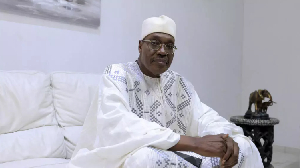A tablet that gives patients with heart problems a medical diagnosis in 20 minutes could dramatically improve healthcare for rural residents far from hospitals.
The Cardio Pad, a touch-screen heart monitoring device, invented by Cameroonian entrepreneur Arthur Zang and recent winner of the Royal Academy of Engineering’s Africa Prize, records a patient’s heart activity via Bluetooth-connected electrodes.
It sends a digitized electrocardiogram (ECG or EKG) to a national healthcare center for a cardiologist to evaluate and return a diagnosis to the patient. The whole process takes less than 20 minutes.
Zang’s tablet was inspired by his own experience growing up in rural Cameroon where he witnessed an uncle succumbing to cardiovascular complications. After graduating from the University of Yaoundé with a degree in computer science he met a cardiologist who talked about the difficulties of reaching patients in rural parts of the country. Zang then spent six months learning everything he could about medical electronics from the internet before designing his tablet.
There are already existing apps to monitor one’s heart from a cell phone or tablet, but Zang’s device is one of the first to be designed and tailored specifically for rural patients. Most important is that it doesn’t have to be operated by a health worker.
The diagnostic kit comes with instructions, cables, electrodes, and the tablet itself. The Cardio Pad is now being used in villages in Gabon, Nepal, and India as well as in Zang’s home country.
Entrepreneurs in Africa have become especially interested in mobile healthcare for rural residents who often have access to a phone but not a formal medical facility. Eye exams can now be done by smartphone in Kenya, reducing the chance of blindness.
A mobile app in Ethiopia where maternal death rates are among the highest in the world instructs mothers and midwives how to safely deliver a baby. The World Health Organization has been promoting many of these initiatives.
Zang hopes to expand eventually and work on other devices like ultrasound equipment or a smart card that businesses and governments can use.
“This award has allowed me to measure myself against the best engineers in Africa. I was pushed to the limits, and it has made me a better scientist and a better entrepreneur,” Zang said after receiving the Africa Prize last week.
Infos Business of Tuesday, 7 June 2016
Source: qz.com













